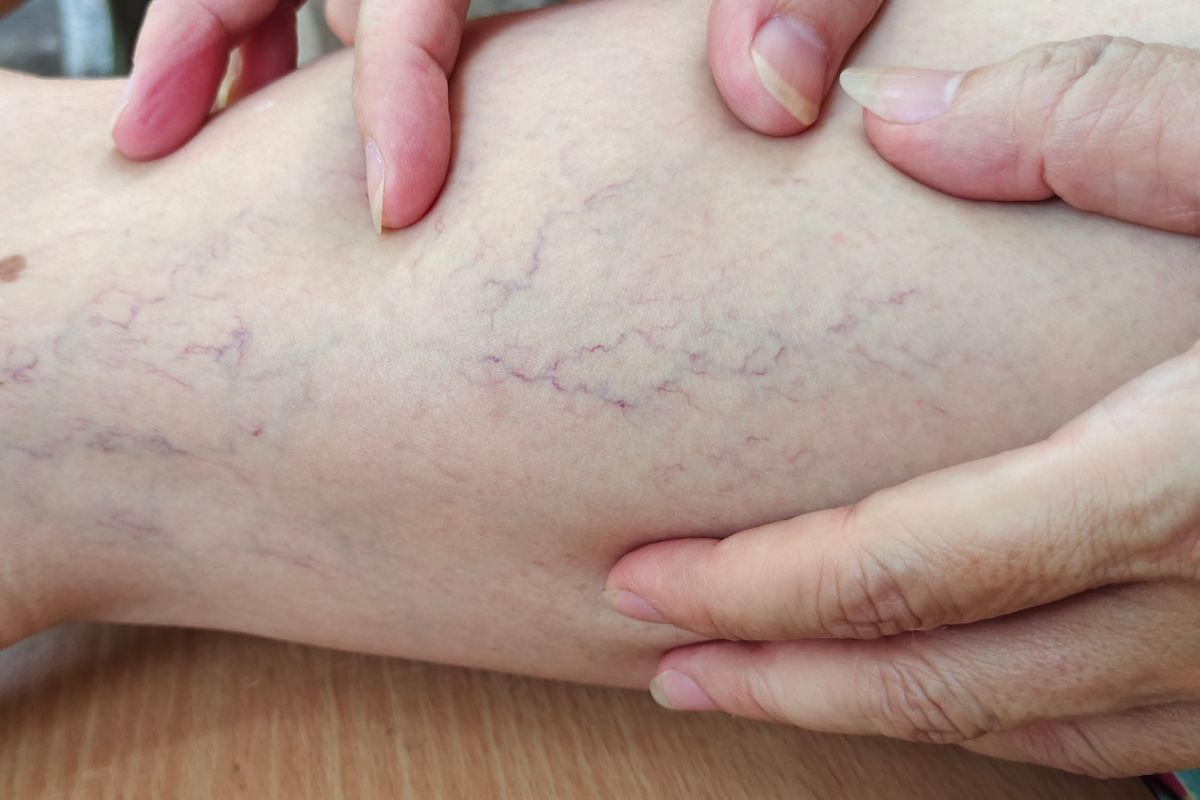Vein health is an important topic, especially when we get old or if we have specific medical conditions. A repeated concern is the subject of “blown veins”. Can the blow vein really take your life? This article will tell about the causes, deterrent tips and treatment options of inflated veins, giving you complete information about this vascular disease.
What is a Blown Vein?
Blown vein when a vein is injured, thereby disrupting blood flow to the surrounding tissues. It is prevalent during intravenous (IV) operation, such as extracting blood or installation IV line. Injuries can result in discomfort, swelling and loss. The blown vein can be horrible, but it rarely poses a threat to life.
How Do Blown Veins Occur?
Blown veins are usually resulted in:
- Incorrect needle insertion: A poorly placed needle can puncture the vein.
- Fragile veins: Some people’s veins are more sensitive to injuries due to age, some therapeutic disorders or prolonged IV drug use.
- Repeated use of the same vein: Constant use of the same vein can weaken it over time.
Can a Blown Vein Kill You?
Quick answer isn’t often. It doesn’t have to be fatal. However, if not managed properly difficulties can occur, especially in people with underlying health concerns.
Potential Complications:
- Infection: If the area around the blown vein gets infected, it can result in big health problems. Always pay attention to the symptoms of infection, such as increased redness, swelling or warmth.
- Thrombophlebitis: This is inflammation of the vein that occurs due to blood clots. Although treatment is possible, but if the clots spread to other areas of the body, difficulties can occur.
- Hemorrhage: In rare circumstances, severe vein injury can result in widespread internal bleeding. In these cases, immediate medical intervention is necessary.
Prevention Strategies
A combination of good technology, knowledge and active health measures is needed to prevent blown veins. Here are some ways to reduce risk:
For Healthcare Providers:
- Use the right size needle: Choose a needle that is adaptable to the size and condition of the patient’s vein.
- Proper technique: Make sure the needle is placed at proper angle and depth.
- Rotate sites: Avoid using the same vein repeatedly to prevent weakening.
For Patients:
- Stay hydrated: Proper hydration makes the veins more accessible and less sensitive to injury.
- Communicate: If you have had a history of blown veins or have experienced unusual pain during operation then inform your healthcare provider.
- Avoid strenuous activities: After the process, avoid activities that can put pressure on the affected vein.
Treatment Options
If your vein has blown, there are several treatments available to control the disease and reduce symptoms.
Immediate Steps:
Stop the procedure: If a vein blows during intravenous process, the first remedy is to stop and remove the needle.
Apply pressure: To prevent any bleeding occurring, put light pressure on the area using a clean towel or gauze.
Elevate the limb: If possible to reduce inflammation should lift the injured limb.
Home Care:
- Cold compress: As a means to reduce inflammation and injury, place a cold compress on the affected area.
- Rest: To help the treatment process, the injured limb should be given a little rest.
- Monitor: Keep an eye on the site for symptoms or deteriorating symptoms of infection.
Medical Treatment:
- Antibiotics: If an infection is present, antibiotics may be prescribed.
- Anti-inflammatory medications: These can help reduce pain and swelling.
- Consult a specialist: In severe cases, you may need to see a vein specialist for further evaluation and treatment.
When to Seek Medical Help
Although most of the blown veins can be treated at home, it’s important to understand when medical aid should be taken. If you have contact with healthcare provider:
- Severe pain: Intense pain that doesn’t improve with home care.
- Significant swelling: Swelling that worsens or spreads.
- Persistent redness or warmth: These could be signs of infection.
- Fever: A fever may indicate a systemic infection requiring prompt treatment.
Get rid of all vein issues with our experts
If you are suffering with any vein issue, ask our board certified vein specialist Nirman Tulsyan. He will study your reports and history and will guide you accordingly with his year’s experience. Book and appointment or call today at +1-973-975-4447.
Conclusion
Even though blown veins, painful and annoying, are usually not fatal. Understanding the causes, preventive tips and treatment options will allow you to manage this disease more effectively. By staying aware and active you can reduce dangers and keep your veins healthy.
If you have any concerns about your veins health or are facing problems repeatedly, you should always meet a healthcare expert. They can provide you personal advice and treatment options to help maintain good vascular health. Consider visiting more about the health of the veins and scheduling an appointment with a prestigious health care professional to talk to a specialist.
